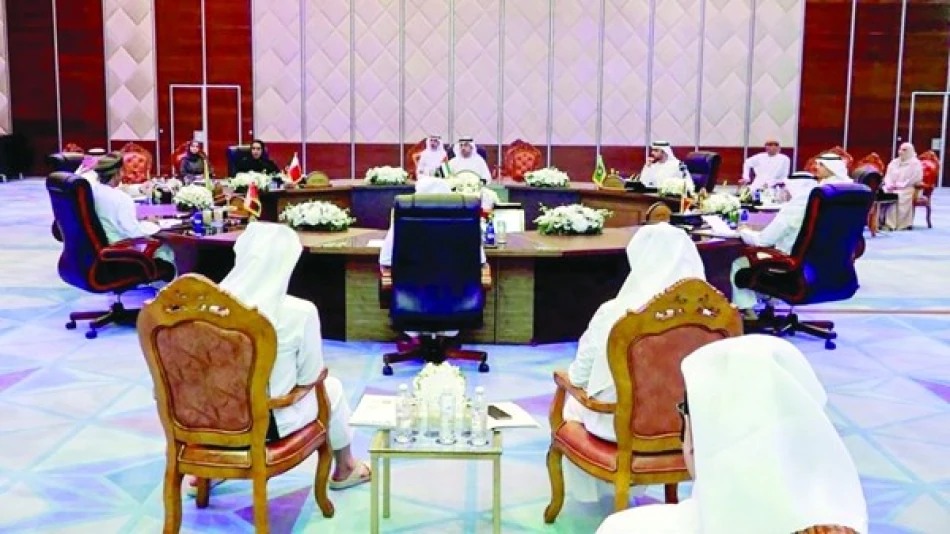
Interior Ministry Participates in Gulf Cooperation Council Security Media Committee Meeting
Gulf States Unite Media Strategies to Combat Money Laundering as Financial Crimes Evolve
Gulf Cooperation Council nations are strengthening their collaborative approach to fighting financial crimes through unified media and communication strategies, as money laundering techniques become increasingly sophisticated across digital and traditional channels. The UAE's Ministry of Interior joined counterparts from across the region in Kuwait this week to develop coordinated anti-money laundering messaging and public awareness campaigns.
Regional Security Coordination Reaches New Heights
The 20th meeting of the GCC Security Media Committee, held alongside a strategic planning workshop for Gulf-wide anti-money laundering efforts, signals a maturation of regional security cooperation that extends beyond traditional military and intelligence sharing. The gathering, organized by the GCC General Secretariat in partnership with the UN Office on Drugs and Crime, reflects growing recognition that modern financial crimes require coordinated public messaging and media strategies.
This approach mirrors successful models seen in other regions, particularly the European Union's coordinated response to cryptocurrency-related money laundering and the United States' multi-agency public awareness campaigns targeting emerging financial crimes.
Why Media Strategy Matters in Financial Crime Prevention
Public Awareness as First Line of Defense
The emphasis on unified media strategies reflects a shift in anti-money laundering approaches globally. Rather than relying solely on regulatory enforcement and banking compliance, authorities increasingly recognize that informed public awareness can prevent crimes before they occur. This is particularly relevant in the Gulf region, where rapid economic diversification and growing fintech sectors create new vulnerabilities.
Cross-Border Criminal Networks Demand Regional Responses
Money laundering operations in the Gulf often span multiple jurisdictions, exploiting regulatory gaps and communication failures between neighboring countries. By standardizing media messaging and public education efforts, GCC states aim to close these gaps and create consistent deterrence across the region.
Market and Investment Implications
For financial institutions operating across Gulf markets, these coordinated efforts signal both opportunity and obligation. Banks and fintech companies can expect more standardized compliance expectations and clearer guidance on reporting suspicious activities. However, they must also prepare for enhanced scrutiny and potentially stricter enforcement as regional authorities align their approaches.
The cryptocurrency and digital asset sector faces particular attention. While the article doesn't specifically mention digital currencies, the UN partnership and focus on "evolving challenges" suggests virtual assets remain a priority concern, following similar patterns seen in Singapore's comprehensive crypto regulations and the UAE's progressive but controlled approach to digital asset licensing.
Strategic Context and Regional Competition
This security cooperation occurs against a backdrop of intense competition among Gulf states to become leading financial centers. The UAE has positioned Dubai and Abu Dhabi as regional hubs, while Saudi Arabia pursues ambitious financial sector goals under Vision 2030, and Qatar prepares for sustained post-World Cup economic growth.
Coordinated anti-money laundering efforts may actually strengthen this competition by raising overall regional standards and international confidence in Gulf financial systems. Clean financial infrastructure becomes a competitive advantage when attracting international investment and partnerships.
What This Means Moving Forward
The workshop's focus on developing comprehensive Gulf-wide anti-money laundering strategies suggests we can expect more concrete policy announcements in coming months. Financial institutions should prepare for potentially harmonized reporting requirements, standardized suspicious activity definitions, and coordinated enforcement actions.
For international businesses and investors, this coordination represents positive development toward more predictable and transparent regulatory environments across the Gulf region, even as enforcement becomes more rigorous and comprehensive.
Most Viewed News

 Layla Al Mansoori
Layla Al Mansoori






